
We recently reached out to telecommunications companies to better understand how they view their organization’s relationship with data. The goal was to gain a pulse on the industry as well as provide accurate and up-to-date information about trends from other organizations to help you evaluate your own operations.
Here’s what respondents had to say as well as our insight on their feedback.
Respondent Company Types
Cooperatives made up the majority of respondents at 70%, followed by privately-owned companies at 26%, and investor-owned companies making up 4%.
The majority of those telecommunications companies have between 1,500 and 7,499 customers. Here’s the breakdown.
Number of Customers and End-Users
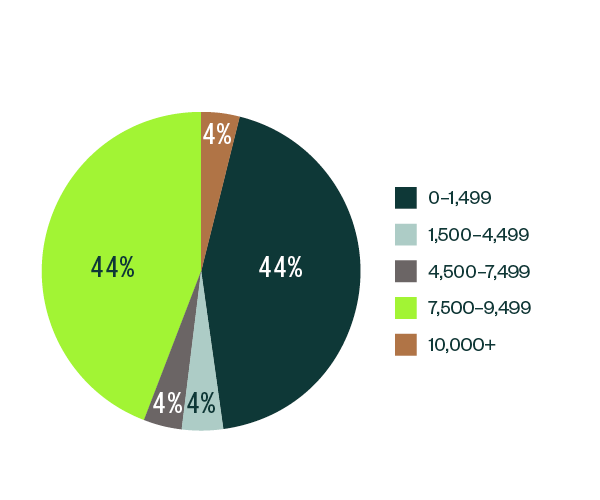.png?width=600&height=500&ext=.png)
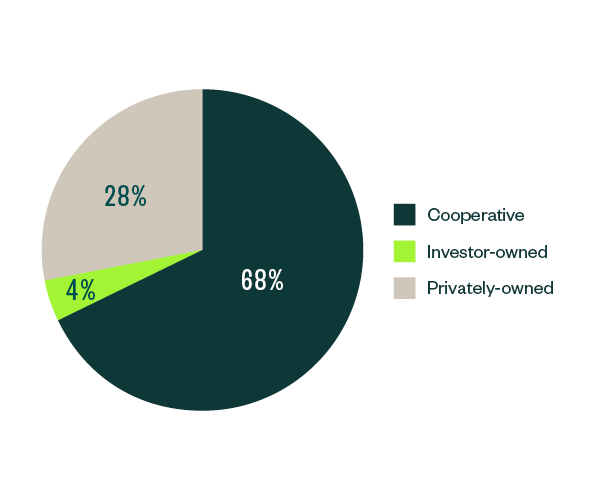
Services Offered
Respondents were instructed to select all services that apply. The majority offer broadband, wireline, and fiber transport as their top three.
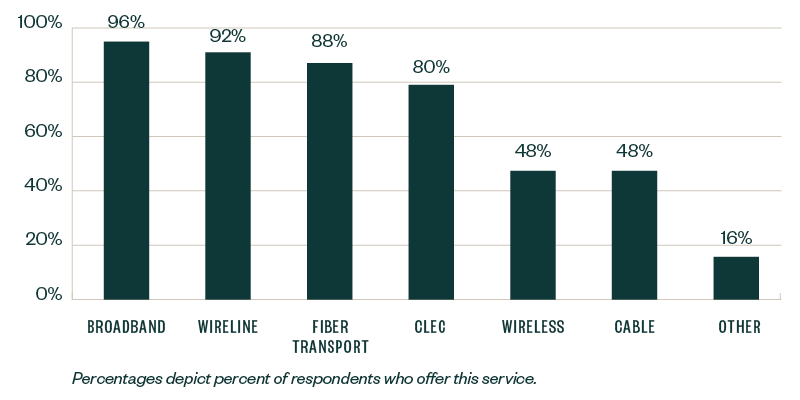
Insight on Data
Here are the questions we asked and a breakdown of responses.
Do You Believe Your Company Collects Sufficient Amounts of Data to Become More Data-Driven?
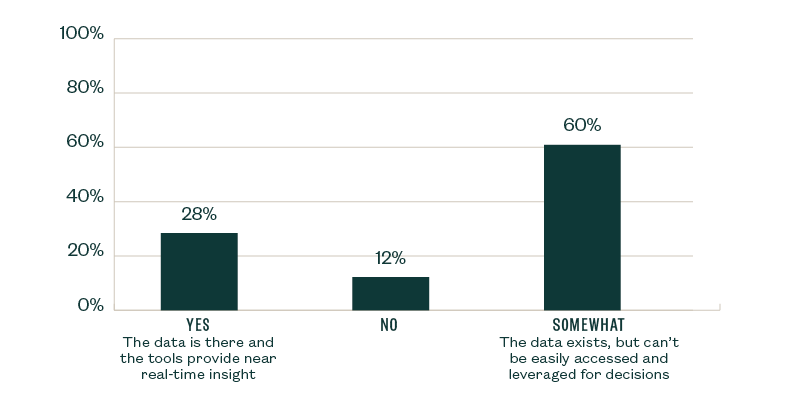
This data is consistent with broader industry trends, although likely more than 12% of companies could use data improvements and might not realize the powerful tools available to help them better leverage their data.
For those who responded “no,” it may be useful to have an outside party assess how to capture and derive strategic value from the extensive data available to them. One of the main reasons people don’t invest the time and money in collecting data and becoming data-driven is they don’t realize the benefits that their own, as well as comparative, data can have on operational efficiency and decision-making.
To accomplish this, integrated real-time data systems are key, and many of the off-the-shelf systems are unable to deliver as advertised or when needed most.
Learn more about how and why to incorporate data analytics into your organizational thinking in our article.
Which Types of Data Do You Believe Would Provide the Most Value to Your Company?
Respondents selected all that applied.
.png?width=945&height=400&ext=.png)
Personnel, the least selected category, is an area that can often lend more insight than companies realize—especially when it’s integrated with other company data.
When different types of data are captured and reported separately, it can result in inefficiencies, inconsistencies, and a lack of centralized information needed for responsive and collaborative decision-making across departments.
This is one reason why an integrated, real-time data system is key to leveraging your data successfully.
To learn how to improve in this area, see our article Accelerate Your Human Capital Strategy with an Organizational Data Model.
Based on Your Response to the Previous Question, Does Your Company Leverage That Data to Make Decisions and Affect Strategic Change in the Business?
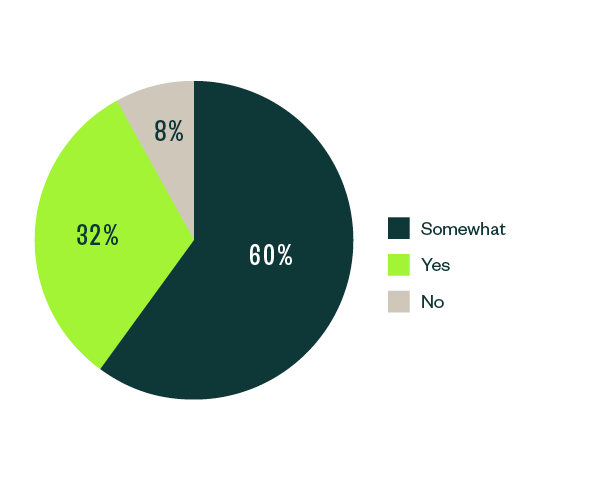
Based on industry trends 32% is uncharacteristically high for effective data usage for informing decisions. Telecommunications companies can take steps to help improve how they leverage data, including:
- Find a point person to drive data decisions and research
- Conduct a data assessment with an outside organization
- Hire professionals to set up a strategy for becoming a more data-centric organization
- Leverage integrated data systems that allow for real-time analysis
Does Your Current ERP Platform Contain Data Analysis and Visualization Tools?
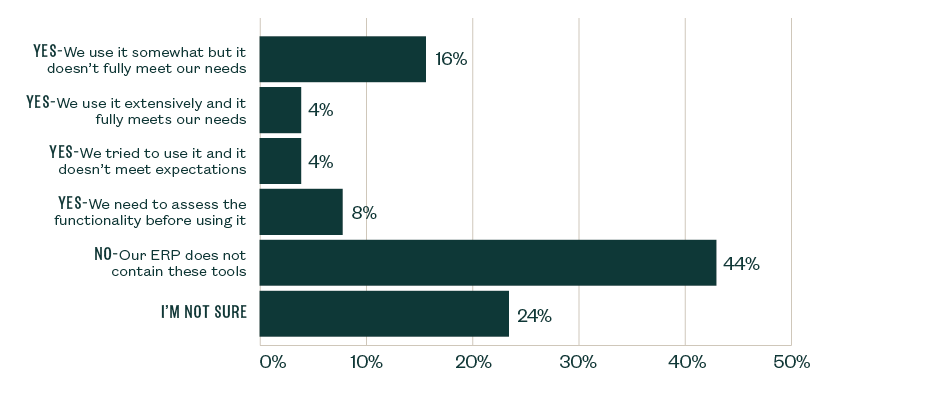
Fewer than 5% of telecommunications companies find their ERP fully meets their data analysis needs. Either the system lacks the data analysis and visualization tools, or the off-the-shelf tools that it does have aren’t customizable to meet the company’s needs. These drawbacks can result in lost time as well as monetary and personnel resources.
While the current systems are a good starting point, they don’t effectively support the needs of a data-driven organization. They’re often only relevant to one type of data and don’t integrate each aspect of the business into one system to inform decisions.
For example, some ERP systems provide data insights for billing and accounting, but separate systems or tools are needed for monitoring customer services, network operations, and personnel.
Upgrading to a best-in-class system is a worthwhile investment because it can help you streamline your data, save time reconciling reports, and can lead to overall increased efficiency.
Next Steps
An ERP is required for effective data analysis; however, these systems can be confusing and, based on the survey responses, it seems there’s even a lack of clarity around what qualifies as an ERP
Across the board, it was clear that most respondents are missing an opportunity to gain insights from their data quickly and efficiently.
To help accomplish this and derive more value from your data, it’s worthwhile to invest the time and money in finding the right system. To get started, look for a system or third-party advisor that can do the following:
- Integrate all your data systems in one place
- Provide real-time, not static insights
- Offer customizable settings and dashboards so you’re tracking what’s relevant
Learn more about what type of ERP system is right for your company in our article or webcast.
We’re Here to Help
The survey results highlighted that the purpose and use of ERP systems can be confusing, especially because many of the systems currently on the marketplace lack integration and real-time analytical capabilities.
Finding a data analytics and visualization system that integrates all data systems into one, easy-to-use platform offering real-time analysis is important for becoming a data-driven organization.
Moss Adams Management Insights is a data analytics service designed to help you derive valuable insights from your existing systems and data by creating customizable dashboards that are user-driven and can be updated in real-time.
We build the tools to your specifications and then you own and modify them—with or without our assistance—as necessary to meet the changing demands of your business.
If you’d like a data assessment or assistance helping your telecommunications company become more data-savvy, please explore our Data Analytics Consulting Services as well as contact your Moss Adams professional.